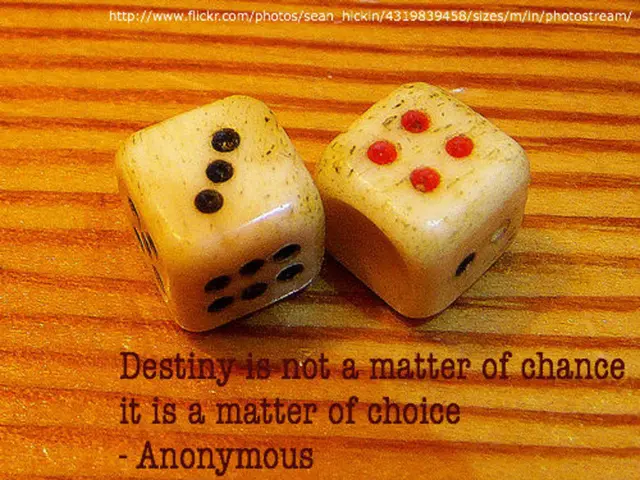Identifying Deceitful Relationships and Online Romance Scams: A 2024 Handbook for Dating Sites and Their Members
In the digital age, romance scams have become a growing concern for online daters. These scams typically involve a scammer building a seemingly trustworthy relationship with a victim, inventing a crisis or obstacle that requires financial help, and asking their digital lover for money.
According to Lloyds Bank, romance scams increased by 22% in 2023 compared to the previous year. Elderly women who are divorced or widowed are common targets for these scammers.
To combat this issue, dating platforms employ various strategies to prevent and address romance scams. These include profile verification, user education, monitoring communications, and reporting mechanisms. They also collaborate with law enforcement and implement legal compliance measures to remove fraudulent accounts.
Platforms use verification processes such as photo verification or linking to social media to confirm user identities and detect fake profiles. Secure messaging systems help protect personal information and enable the platform to monitor for suspicious activity, such as unusual financial requests or pressure tactics.
User education and warnings are also crucial. Dating sites and official consumer agencies provide guidance on spotting scams, including signs like rapid relationship escalation, requests for money, inconsistent stories, excessive messaging or ‘love bombing,’ and attempts to move communication off-platform.
When suspicious behaviour is reported, platforms promptly investigate and suspend or remove fraudulent accounts. Laws like the Romance Scam Prevention Safety Act of 2023 require platforms to notify users who interacted with scammers.
Collaboration with authorities is also key. Fusion cells and law enforcement agencies work with dating platforms to disrupt scams, using financial intelligence to investigate and prosecute offenders.
Users can also take steps to protect themselves. Consistent recommendations include never sending money or gifts to someone not met in person, conducting reverse image searches, stopping communication with suspected scammers, and reporting fraud to platforms and authorities immediately.
It's important to remember that a romance scam is a type of fraud where a scammer creates a fake profile on a dating site or social media platform, pretending to be romantically interested in someone to gain their trust and eventually exploit them financially. Always consider the possibility that a match might be a scam, and look beyond loving messages to focus on facts to determine if a potential partner is genuine.
Romance scams can lead to heartbreak, bankruptcy, and reputational damage for both the users and the platforms. They may also lead to money muling, a form of money laundering where individuals are asked to move illicit funds.
In summary, by combining technological tools, user guidance, active monitoring, legal compliance, and cooperation with authorities, dating platforms are effectively detecting, preventing, and responding to romance scams. Users are encouraged to report scammers to the dating platform, financial institution, and law enforcement or government institutions responsible for fraud detection, and to seek advice from a trusted person to avoid being isolated from friends and family or pressured into making impulsive decisions alone.
In the realm of general news, the concerning trend of romance scams continued to escalate in 2023, with increases of 22% reported by Lloyds Bank. These scams often intersect with personal finance matters, exploiting victims, particularly elderly women who are divorced or widowed.
To tackle this issue, platforms in the field of personal finance, as well as dating sites, employ various strategies to prevent and address romance scams. These range from profile verification and user education to monitoring communications, reporting mechanisms, collaborations with law enforcement, and implementing legal compliance measures.




